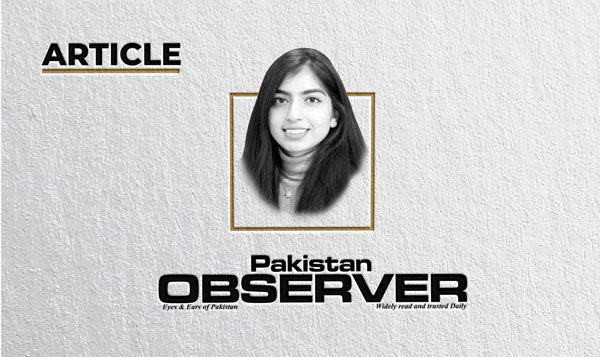Violence against women in the conflict zone
DECLARATION on the “Elimination of Violence Against Women” issued by the UN General Assembly in 1993, defines violence against women as “any act of gender-based violence that results in, or is likely to result in, physical, sexual or psychological harm or suffering to women, including threats of such acts, coercion or arbitrary deprivation of liberty, whether occurring in public or in private life.
” The International Day for the Elimination of Violence Against Women is celebrated on 25 November which aims to prevent and eliminate violence against women and girls around the world, calling for global action to increase awareness, promote advocacy and create opportunities for discussion on challenges and solutions.
Violence against women is a human rights violation, and the immediate and long-term physical, sexual and mental consequences for women and girls can be devastating, including death.
It continues to be an obstacle to achieve equality, development, peace as well as to the fulfilment of women and girls’ rights.
The promise of the Sustainable Development Goals (SDGs), “to leave no one behind”, cannot be fulfilled without putting an end to this violence.
While gender-based violence can happen to anyone, anywhere, some women and girls are particularly vulnerable, for instance those who are living under escalated conflict.
The systematic violence against women in Indian Illegally Occupied Jammu and Kashmir (IIOJK) has unprecedented effects on their lives.
The conflict between Indian security forces and insurgents demanding independence and accession to Pakistan increased reports of sexual violence at the hands of the Indian army, police, and paramilitary forces.
Rape is used by the security forces as a means of targeting women they accuse of being militant sympathizers.
It is an attempt to punish and humiliate the community to be accurate.The state of Jammu and Kashmir accounts for about 50 % of the women population.
Heinous acts of violence against women in Kashmir valley have become the order of the day.
The women particularly age group 18-49 fell victim, which has affected their physical, mental and social well-being.
Indian security forces are using counter-terrorism measures as an excuse to commit acts of sexual violence against Kashmiri women and the system of impunity that protects them from accountability.
In 1994, Human Rights Watch report on Jammu and Kashmir highlighted cases of sexual misconduct by Indian Police, military, and intelligence agencies occurring primarily as a result of “counter-insurgency operations” Violence against women in most cases results serious injuries and death of women, which is intolerable and highly condemnable.
According to HRW report, these rapes most often occur during crackdowns and search operations during which men are taken out for identification while security forces search their homes.
Women also fall victim to sexual violence during attacks on civilians following militant ambushes.
This form of violence in IIOJK is touching new heights and breaking all records because of the current conditions of the region.
Prior to abrogation of article 370, The National Commission for Women receives thousands of complaints of violence against women which were being resolved to most extent but due to abrogation of article 370, the abolition of the NCW in IIOJK results in thousands of grievances pending and undisposed.
Its abolition provided wings to the culprits of violence against women and added marginalization of women.
The cybercrime, dowry harassment, gender discrimination, outraging modesty of women, stalking, acid attack, attempt to rape and scores of crimes have been further strengthened and increased.
Section 5 of the Armed Forces (Special Powers) Act (AFSPA), Indian Army officials are offered a form of immunity where military personnel cannot be prosecuted unless there is a prior sanction for investigation by the central government.
It is reported by “Kashmir Media Service” that security forces raped 11,224 women between 1989 and 2020, including those as young as 11 years and as old as 60-year women.
The Public Safety Act (PSA) of 1978 enables authorities to detain Kashmiris for two years without trial.
It gives security forces total discretion in detentions, which could occur simply for trying to resist sexual violence or attempting to report such incidents. PSA ensures that victims of sexual violence do not have access to justice.
The situation in Kashmir is an occupation and, therefore, can be classified as an international armed conflict to which all the customary international humanitarian laws apply.
India is a signatory to the Geneva Conventions of 1949, where Common Article 3 prohibits the murder, torture, and ill-treatment of non-combatants by both government and militant forces.
So they are violating the International Law. Article 27 states, “Women must be especially protected against any attack on their honour, particularly against rape, enforced prostitution or any form of indecent assault”.
Moreover, India is a party to international human rights treaties such as the International Covenant on Civil and Political Rights (ICCPR), the Convention on the Elimination of All Forms of Discrimination against Women (CEDAW) and International Human Rights Law (IHRL).
Advisory Opinions (1996) states that the “protection of the ICCPR does not cease in times of war”, ensuring that human rights treaties are applicable during armed conflicts as well.
Article 4 of the Declaration on the Elimination of Violence against Women states that governments should pursue by all appropriate means should exercise due diligence to prevent, investigate and punish acts of violence against women whether those acts are perpetrated by the state or by private persons.
To conclude, India has violated several international laws that directly States to protect their citizens from instances of sexual violence.
It is high time that international human rights organizations hold the country accountable for such violations.
—The writer has remained associated with the Institute for Strategic Studies and ISPR.










